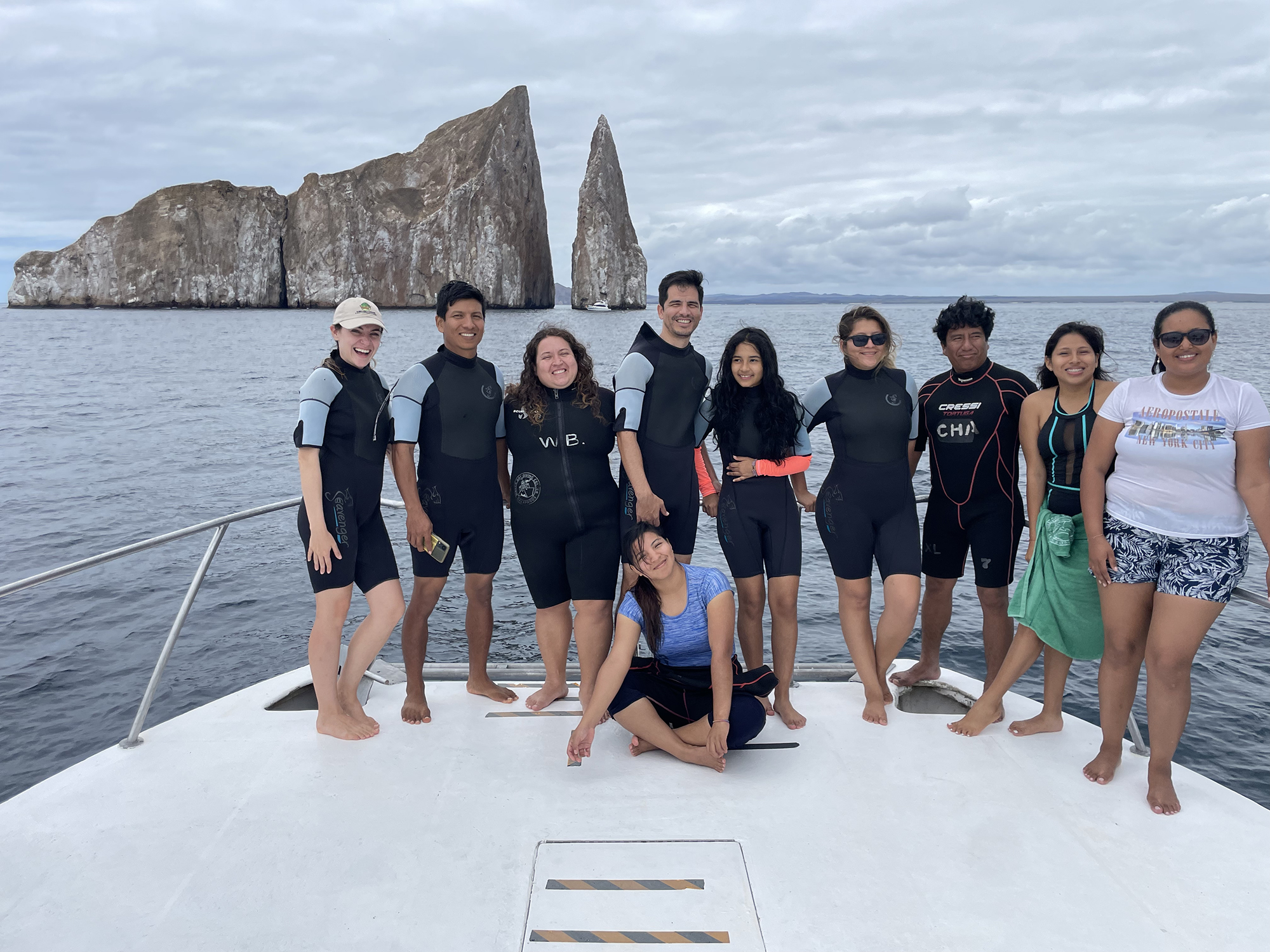
"These students were among seven people from Penn who spent two months in the Galápagos this summer, along with fourth-year environmental studies major Lía Enríquez, Master of Public Health student Vanessa Pacheco, and Kelly Kennedy, lab manager for the Galápagos Education and Research Alliance (GERA).
'Seeing everything to do there and learning from everyone there, I feel like my science skills got a lot better, I feel like my Spanish skills got a lot better, and it was incredible to just push myself outside my comfort zone,' says Gilbert, who is from Ellicott City, Maryland.
While GERA research pre-pandemic centered on the relationship between sea lions and human residents, students this summer focused on antibacterial resistance, vectors of disease, climate change adaptation, and the impact of climate change on mental health. 'We call our research approach ‘social ecology,’' says Michael Weisberg, director of GERA and chair of the Philosophy Department in the School of Arts & Sciences, 'and the idea is to really think about the whole system: human, non-human, and the abiotic environment. In Galápagos, it’s very easy to ignore the human part of the system since the wilderness areas are very well-preserved, but we think this is a mistake. If we miss the human dimensions, we won’t really understand the place.'"

 Department of Philosophy
Department of Philosophy